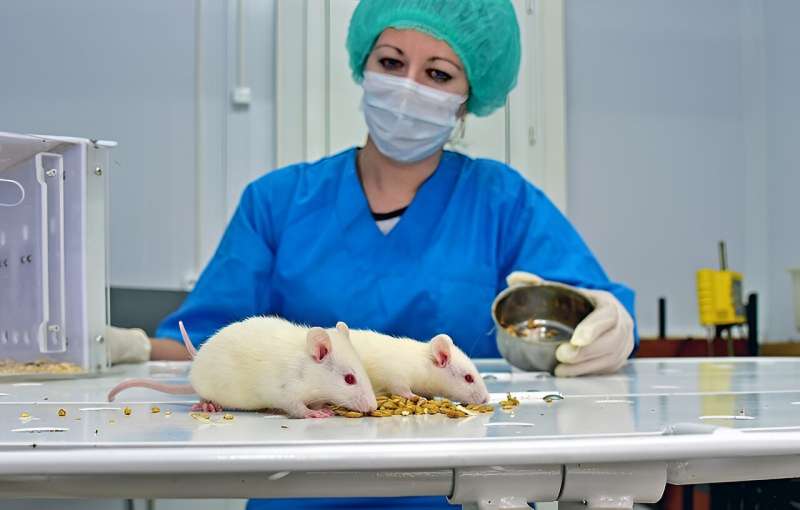This article has been reviewed according to Science X's editorial process and policies. Editors have highlighted the following attributes while ensuring the content's credibility:
fact-checked
proofread
Survey reveals New Zealanders' views on animal use in scientific research and teaching

A recently conducted study reveals New Zealanders' perspectives and knowledge on the use of animals in scientific research, testing, and teaching. The study was conducted on behalf of the New Zealand board of the Australian and New Zealand Council for the Care of Animals in Research and Teaching (ANZCCART NZ).
It uses a robust methodology to capture a diverse range of views, the survey provides a comprehensive and reliable insight into a topic of significant societal and ethical importance in New Zealand. Its results are important for all stakeholders: animals, organizations that use animals in research, testing and teaching, research funders, animal welfare organizations, veterinarians, government and others overseeing animal use, and the public.
Key findings from the research include:
- High Engagement but an Information Gap: Animal use in scientific research is a topic of significant interest to New Zealanders, with 94% of respondents caring to some degree about the issue, and 67% caring moderately or very much. However, there is a discernible gap in knowledge. Only 16% feel well-informed about the regulation of this animal use, and 43% of respondents acknowledged a lack of awareness regarding the permitted uses of animals. Animal use for cosmetic testing is banned in New Zealand, but only a third of respondents thought this was so.
- Most research uses are accepted: Over 60% of respondents found animal use acceptable for improving animal health, species conservation, biological research, environmental management, developing live animal alternatives, and animal husbandry. Veterinary research was the most accepted at 69%, with only 8% opposing it. The majority (62%) also supports developing alternatives to live animal use.
- Greater opposition to some uses: Producing offspring with compromised welfare was the only use the majority judge unacceptable, with 56% against and only 17% in favor. There is also majority opposition to animal testing of harmful chemicals, with between 59% and 64% finding it unacceptable depending on whether they harm people, animals, plants or the environment. Using animals to produce biological agents and product testing on animals were both judged acceptable by only a third of respondents, with almost equal unacceptability.
- Varied Opinions on Regulation: While 48% of respondents believe that the current oversight by Animal Ethics Committees is adequate, 54% state a preference for more public involvement in ethical approval, and 44% more government involvement.
- Mixed Perceptions of Animal Research Organizations: About a quarter of those surveyed are unsure of their stance on organizations involved in animal research but 34% believe these organizations carry out work essential for human health. A quarter of respondents hold the views that they are secretive, well-regulated, may have conflicts of interest, and adhere to good animal welfare standards, showing a mix of beliefs.
- Demand for Increased Transparency and Public Engagement: A notable 76% of respondents express the need for more transparency from research institutions. Additionally, 54% of participants voice a desire for greater public involvement in related decision-making processes.
- ANZCCART NZ Openness Agreement: There is a clear opportunity to increase public understanding of the ANZCCART NZ Openness Agreement, which aims to increase accessibility of information about animal use in research and teaching, enhancing public understanding. Currently only 9% of respondents are currently aware of it. Around two thirds of those respondents learned of the agreement either from the ANZCCART NZ website or a scientific or medical publication.
- Trusted Information Sources: Half of the survey participants place trust in animal welfare organizations for reliable information on the topic, and 42% trusted veterinarians who care for animals used in research, testing and teaching. The findings underscore a collective concern for the ethical treatment of animals in scientific contexts. The desire for clarity, openness, and enhanced communication from all involved parties is clear. While online platforms are currently the primary source of information for many, there's a preference for accurate and comprehensive insights from trusted entities, and an opportunity for trust in others to be enhanced by greater openness and other measures.
The survey illuminates opportunities for enhanced dialogue and collaboration between stakeholders in animal research and the public. These include working with respected animal welfare organizations and veterinarians and making pertinent information about animal use and its ethical oversight more accessible. Animals used in research cannot represent themselves, so are dependent on societal views to protect and advance their welfare. The results of this survey must be listened to, and it should be repeated regularly to check progress, and to assist those striving for it.
Dr. Christine Sumner, SPCA scientific officer, says, "What we are reading from this report are some very positive shifts in public perception and understanding of animals being sentient creatures, capable of feeling emotions and experiencing pain and trauma. It features very strong signals to those who use animals in research, testing, and teaching—and to the government—that the public expects more development and implementation of alternatives to animals in research, testing, and teaching.
"Namely, that New Zealanders have high expectations for the welfare of animals used in research, testing, and teaching, that they want more transparency around this topic and that there is significant interest in alternatives to alleviate animal suffering.
"These points all align with our organizational position at SPCA—which is that we only support the keeping of animals for research, testing, and teaching when the animals' physical, health, and behavioral needs are met, and when it is ensured animals experience positive welfare for the entirety of their life."





















